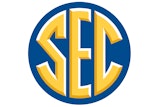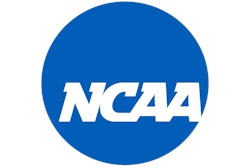
High school athletes who change schools twice after the ninth grade will be ineligible to compete for one year under new Georgia High School Association bylaws expected to gain final approval later this month.
As reported by Todd Holcomb for Georgia High School Football Daily, other bylaw changes aimed at policing transfers would require schools to send the GHSA copies of driver’s licenses, utility bills and lease agreements from the families of transferring athletes to prove they have moved into their new school zones and relinquished previous residences.
“We’re an education-based organization, and we want to make sure that when student-athletes move, they’re not moving for athletic purposes,” GHSA executive director Tim Scott said Monday. “Situations change, and families move due to job changes or whatever, so we’ve added a few things to make sure it’s not just for athletics.”
Scott said that about 5,916 of the GHSA’s 462,492 athletes were transfers during 2024-25. Almost all football and basketball state champions in the higher classifications have significant transfers, according to Holcomb.
The GHSA’s board of trustees voted 11-1 to approve the new transfer bylaws last week, Holcomb reported. As with all GHSA constitutional changes, the board must approve the bylaws a second time, in July, before they go into effect Aug. 1.
“There are questions regarding the overall wording and the harshness of the possible loss of eligibility for multi-time transfers,” McMillan said. “It’s stated in the proposal that there will be a hardship appeal available for anyone that does fall under the loss-of-eligibility umbrella, but historically, hardship appeals have not favored the student-athlete, so that is a big concern. As is, it seems this proposal could disproportionally affect transient Metro Atlanta communities more than other parts of the state.”
Students who change schools generally must make what the GHSA calls a bona fide move in residence, Holcomb reported. The driver’s license requirement is designed to confirm that transferring students and their guardians are living at a legal address inside the new school zone.
Eligibility in most cases also requires that a transferring student’s family has relinquished, or put up for sale at market price, the previous residence and moved as a full family unit. Now, the school must provide to the GHSA evidence of terminating a lease agreement and turning off utilities when applicable, per Holcomb's reporting.
“These are things you do if you’re moving from any county to another, things that you provide your new school,” GHSA eligibility chairman and Gwinnett County Schools athletic director Jason Holcombe said. “We’re just making sure that everyone is following these processes correctly and that these moves are legitimate.”
Another bylaw change would make transfers ineligible if they move from one parent’s residence to the other in a different school district unless both parents are on the student’s birth certificate.
Those declared ineligible under any transfer bylaw would have three opportunities to appeal under the GHSA’s hardship rule. Scott said about two-thirds of transfer hardships were approved in the 2024-25 academic year.
However, per Holcomb's Georgia High School Football Daily report, appealing to be eligible after a second transfer will face more inspection and must show the move was “beyond the control of the school, the student, and/or his parents,” according to the new bylaw.
One-time transfers for athletic reasons do not come under the same scrutiny about their motives.
“Academically, it’s not good to have a lot of moves,” Scott said. “We understand some students have to move for many reasons, but we want to continue to stress we’re education-based, and the most important thing is to prepare students for post-secondary education.”





































